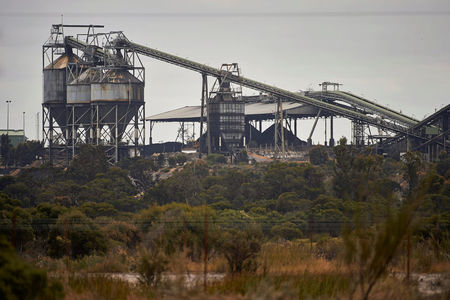Metallurgical coal set to flip into surplus in 2025: BofA
2024.10.01 10:47

Investing.com — Metallurgical coal is poised to transition into a market surplus by 2025, as per BofA Securities analysts in a not dated Monday.
Since 2021, the global met coal market has faced a persistent supply deficit, but growing output from key suppliers like the United States and Mongolia, combined with a slowdown in demand, especially from China, is shifting the market dynamics.
As this transition progresses, BofA predicts that by 2025, the market will have flipped into a surplus, a development likely to exert downward pressure on prices.
Currently, Australian hard-coking coal prices have already fallen to around $180 per tonne Free on Board, impacted by sluggish steel production and growing coal supply.
Although prices have declined, suppliers appear unwilling to sell below $200 per tonne, with freight costs between China and Australia factored in at $13.5 per tonne. This resistance to lower pricing is providing a floor to met coal prices.
However, if prices were to drop further, particularly in North America, supply cuts could ensue as some producers might find continued operation unprofitable.
A key factor driving this anticipated surplus is declining demand from China, the world’s largest consumer of coking coal. The country’s steel industry faces significant challenges, including a continued slump in the real estate sector.
This decline has driven down steel prices and forced producers to reduce output, in turn lowering demand for met coal.
Despite efforts by the People’s Bank of China to stimulate the economy, BofA notes that credit demand remains weak, limiting the potential for a sustained recovery in steel demand.
Meanwhile, India is emerging as a critical driver of coking coal demand, as the country focuses on infrastructure development and housing projects. Indian steel production is on track to rise by 12% year-over-year, positioning India as a growing consumer of met coal.
While this rise in demand is notable, BofA asserts that it will not be enough to prevent the market from entering a surplus in 2025.
Indian steelmakers continue to rely on blast furnaces, ensuring a steady need for coking coal, but even this strong demand cannot offset the broader global dynamics pushing the market toward oversupply.
Looking ahead to 2025, while the shift to a surplus may put a cap on price increases, there are several factors that could skew prices to the upside in the short term. Demand from India remains robust, and potential disruptions to supply from Australia, driven by weather events like La Niña, could constrain production, providing temporary support to prices.








